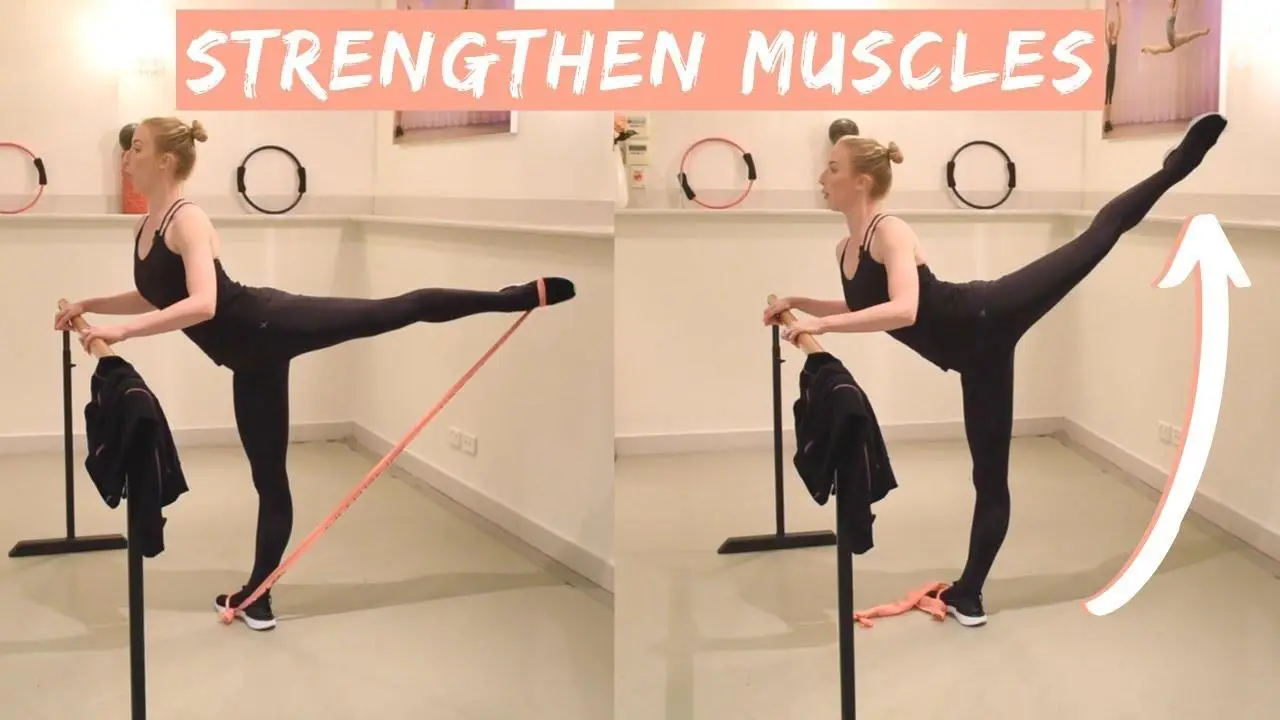Many people underestimate the importance of having a strong and stable lower back. However, a strong foundation is crucial for overall strength and mobility. In this article, we will explore effective lower back workouts that will help you strengthen your foundation and improve your stability. Whether you’re a seasoned gym-goer or a beginner looking to build your strength, these exercises will help you achieve a solid base to support your entire body.
– Building a Solid Base: Understanding the Importance of Lower Back Strength

A strong foundation is essential for any successful fitness journey. Your lower back plays a crucial role in providing stability and support for your entire body. Building strength in this area can help prevent injuries, improve posture, and enhance overall performance in various activities. Incorporating targeted lower back workouts into your routine is key to developing a solid base for your fitness goals.
When it comes to strengthening your lower back, there are several effective exercises you can incorporate into your workout routine. These exercises target the muscles in your lower back, helping to improve strength and stability. Some effective lower back workouts include:
- Deadlifts: This compound exercise targets multiple muscle groups, including the lower back, hamstrings, and glutes. Proper form is essential to prevent injury and maximize results.
- Superman holds: This bodyweight exercise helps to strengthen the erector spinae muscles in the lower back. Hold the position for a few seconds to feel the burn.
- Bridges: This exercise targets the lower back, glutes, and hamstrings. Focus on squeezing your glutes at the top of the movement for maximum benefit.
Consistency is key when it comes to building lower back strength. Incorporating these exercises into your routine 2-3 times a week can help you see significant improvements in your lower back stability over time. Remember to listen to your body, start with lighter weights or modifications if needed, and gradually increase intensity as you progress. With dedication and hard work, you can strengthen your lower back and lay a solid foundation for your fitness journey.
– Targeted Exercises for Lower Back Stability and Support

Having a strong and stable lower back is crucial for overall fitness and functionality. By incorporating targeted exercises into your workout routine, you can improve your lower back stability and support, reducing the risk of injury and increasing your overall strength.
One effective exercise for lower back stability is the bird dog. This exercise involves getting on your hands and knees, then extending one arm and the opposite leg simultaneously while keeping your back straight. This move challenges your core and lower back muscles, helping to improve your overall stability.
Another great exercise for lower back support is the superman pose. Lie on your stomach with your arms extended in front of you, then lift your arms and legs off the ground simultaneously, focusing on engaging your lower back muscles. Hold this position for a few seconds before lowering back down.
Incorporating these targeted exercises into your workout routine can help you strengthen your foundation and improve your lower back stability and support. Remember to always listen to your body and consult with a fitness professional before starting any new exercise routine.
– Form and Technique: Key Factors for Injury Prevention in Lower Back Workouts

When it comes to lower back workouts, form and technique are crucial for preventing injuries and ensuring maximum results. It’s important to focus on strengthening the muscles in your lower back while also paying attention to proper form to avoid strain and discomfort. By incorporating key factors like alignment, stability, and controlled movements into your workout routine, you can significantly reduce the risk of injury and improve overall strength and stability in your lower back.
Alignment: Maintaining proper alignment is essential for targeting the correct muscles in your lower back and avoiding unnecessary strain on other areas of your body. Focus on keeping your spine neutral and your shoulders down and back to support a strong and stable foundation during each exercise.
Stability: Building stability in your lower back is key to preventing injuries and improving overall strength. Engage your core muscles throughout each movement to provide support and stability to your spine. Incorporate exercises that target the muscles surrounding your lower back, such as the glutes, hamstrings, and core, to enhance stability and reduce the risk of injury.
| Muscle Group | Exercise |
|---|---|
| Glutes | Bridge |
| Hamstrings | Romanian Deadlift |
| Core | Plank |
Controlled Movements: Focus on slow and controlled movements during your lower back workouts to maximize muscle engagement and reduce the risk of injury. Avoid using momentum to complete exercises, and instead, concentrate on proper form and technique to target the muscles in your lower back effectively.
– Integrating Core Strengthening Exercises for Comprehensive Stability

When it comes to achieving comprehensive stability in your workout routine, integrating core strengthening exercises is key. Not only does a strong core help improve your posture and overall strength, but it also plays a crucial role in preventing injuries, especially in the lower back area.
One effective way to strengthen your lower back and core muscles is by incorporating exercises such as planks, deadlifts, and bird dogs into your routine. These exercises target the muscles in your abdomen, lower back, and hips, helping to improve your overall stability and balance.
Additionally, adding pilates or yoga poses that focus on core strength can also be beneficial in enhancing your stability. These exercises not only strengthen your core muscles but also improve flexibility, which is essential for maintaining proper alignment and reducing the risk of injury.
| Exercise | Benefits |
| Planks | Strengthens core muscles |
| Deadlifts | Targets lower back muscles |
| Bird Dogs | Improves balance and stability |
Q&A
Q: Why is it important to have a strong lower back?
A: A strong lower back is essential for overall stability and injury prevention.
Q: What are some effective lower back workouts for building strength?
A: Deadlifts, hyperextensions, and reverse hypers are great exercises for targeting and strengthening the lower back.
Q: How often should I incorporate lower back workouts into my routine?
A: Aim to incorporate lower back workouts into your routine 2-3 times a week for optimal results.
Q: Are there any specific stretches that can help alleviate lower back pain?
A: Yes, stretches such as cat-cow, child’s pose, and seated spinal twist can help relieve tension and improve flexibility in the lower back.
Q: Is it safe to perform lower back workouts if I have a history of back pain?
A: It is important to consult with a medical professional before starting any new workout routine, especially if you have a history of back pain. They can provide guidance on exercises that are safe for your specific situation.
To Wrap It Up
As you continue to focus on strengthening your lower back and building a stable foundation, remember that consistency is key. By incorporating these effective lower back workouts into your routine, you can enhance your stability and support overall physical health. So, embrace the challenge, stay dedicated, and watch as your strength grows from the ground up. Here’s to a strong and stable foundation that will serve you well in all your future endeavors. Keep pushing forward, and remember, your lower back is the backbone of your strength!



